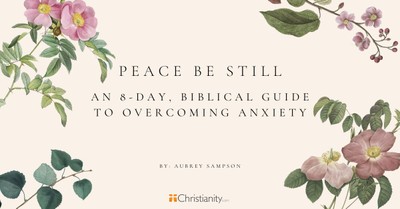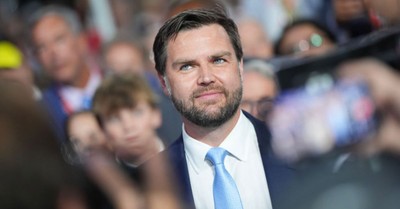The Danger of Tolerance
There is much I should be writing about today. For example, a massive new bird flu outbreak in Israel is raising fears of another global pandemic if the virus, which causes 50 percent mortality in humans, is becoming more infectious to us. “There could be a mutation that also infects people and turns into a massive disaster,” an Israeli expert warns.
Meanwhile, the global pandemic we are already facing continues to dominate the news. The omicron variant is fueling a massive surge in COVID-19 cases in the US. Flight disruptions are continuing; cities around the world are canceling New Year’s Eve celebrations as hospitalizations rise with an increase in hospitalized children as well.
Why, then, would I devote today’s Daily Article to a person many of you may not know beyond his name and his most famous achievement?
The death of Archbishop Desmond Tutu made global headlines Sunday evening. I mentioned his death in yesterday’s Daily Article with deep gratitude for his fight against apartheid. However, I need to say much more about his life and his beliefs, since the former was so winsome while the latter have become both popular and deeply problematic in our culture.
When I heard Desmond Tutu speak
Let’s begin with the positive.
Desmond Tutu was born in 1931 in South Africa. A brilliant student, he obtained an honors degree from Kings College in London with a focus on Hebrew, completed a Master’s degree with a focus on Islam, and studied Arabic and Greek in Jerusalem. He rose through Anglican leadership ranks to become general secretary of the South African Council of Churches, working courageously in this capacity against apartheid and receiving the 1984 Nobel Peace Prize as a result.
He was appointed Archbishop of Cape Town in 1986, serving in this role until his retirement in 1996. He remained active in social and international affairs for many years afterwards.
Upon hearing of the archbishop’s death, the Archbishop of Canterbury, Justin Welby, called Tutu a “pioneer” and said his death was “a great loss.” The present Archbishop of Cape Town, Thabo Makgoba, stated: “He wanted every human being on Earth to experience the freedom, the peace, and the joy that all of us could enjoy if we truly respected one another as people created in the image of God.”
While Desmond Tutu was a man of fearless courage, he couched that courage in a genuine humility, winsome graciousness, and quick wit. I heard him speak in Dallas many years ago and still remember his kindness and gentle humor. I have never heard a more likeable speaker.
Church officials in South Africa are planning a weeklong send-off for the archbishop that will include a lying in state ceremony, an ecumenical service, and a requiem mass.
"I would not worship a God who is homophobic"
In 2013, Archbishop Tutu stated while campaigning for gay rights: “I would refuse to go to a homophobic heaven. No, I would say sorry, I mean I would much rather go to the other place. I would not worship a God who is homophobic.” In 2015, his daughter Mpho Tutu married a woman in the Netherlands. Tutu attended and blessed the proceedings despite Anglican opposition to same-sex marriage.
In his 2010 book, Made for Goodness: And Why this Makes All the Difference, Tutu wrote: “The reality of heaven cannot tolerate the existence of hell. Even our worst enemies are God’s beloved children. What kind of God could endure the sight of God’s own children screaming in eternal pain?” He predicted that all people “will be drawn into heaven by the love of God. The power of evil will ultimately become unattractive, and we will yield to the beauty of heaven.”
You can see how a person who experienced the horrors of apartheid might campaign so passionately for the value of every human and question the belief that any person could be separated eternally from God. In this sense, Desmond Tutu was a theologian for our times.
Our culture’s insistence on tolerance of all people and their sexual “rights” has become all-consuming. For anyone to suggest that some of these “rights” are immoral is to be homophobic. The claim that Christ is the only way to heaven and that those who reject him will be separated from him in hell is branded as intolerant in the extreme.
The danger of tolerance
It is therefore alluring to embrace humanity as the archbishop did, with good-natured acceptance of all people as they are. It is unsurprising that many are rejecting biblical orthodoxy in their claim to be “spiritual but not religious” while others are “changing their minds” about some of the essential doctrines of historic Christianity.
But is it possible for tolerance to harm the objects of tolerance? Can good parents tolerate that which injures their child? Could good friends allow their friends to persist in behavior that is injurious to them?
As cultural commentator Mary Eberstadt has clearly and powerfully documented, the rise of secularism and the so-called sexual revolution have produced six decades of “unprecedented rates of divorce, cohabitation, abortion, and fatherlessness.”
She adds: “The modern diminutions of family and faith exact a civilizational toll. It’s hard to believe we are better off in a world where many men will never know the joy and spiritual deepening of fatherhood; where many women reach middle age without ever having held a baby, let alone having loved and nurtured one from birth to adulthood; and where growing swaths of the population will never encounter many of the greatest treasures of the human patrimony—i.e., the art and literature and philosophy of Judeo-Christianity.”
"Bad ideas have victims"
Jesus was the greatest lover of humans in human history. He embraced lepers (Matthew 8:3), welcomed “tax collectors and sinners” (Matthew 9:10), befriended notorious villains (Luke 19:1-10), and died for all sinners across all time (Romans 5:8). But he loved us enough to speak the truth we needed to hear. He exposed personal sin (John 4), called hypocrites to repentance (Matthew 23), and challenged humanity to the highest standards of holiness ever articulated (cf. Matthew 5-7).
Now he is calling us to follow his example.
In a world where omicron is raging and new pandemics may be on the horizon, where the future is as unpredictable as it is frightening, it is vital that we speak the truth in love (Ephesians 4:15), knowing that God’s word and will are always best for God’s creation.
Tomorrow we’ll identify some practical ways to champion biblical truth. For today, let’s decide that we will do so at any price. Archbishop Tutu was right: “There comes a point where we need to stop pulling people out of the river. We need to go upstream and find out why they’re falling in.”
John Stonestreet noted: “Ideas have consequences. Bad ideas have victims.”
Will you help the victims you know today?
Publication date: December 28, 2021
Photo courtesy: Kirsty Lee/Unsplash
Jim Denison, PhD, is a cultural theologian and the founder and CEO of Denison Ministries. Denison Ministries includes DenisonForum.org, First15.org, ChristianParenting.org, and FoundationsWithJanet.org. Jim speaks biblically into significant cultural issues at Denison Forum. He is the chief author of The Daily Article and has written more than 30 books, including The Coming Tsunami, the Biblical Insight to Tough Questions series, and The Fifth Great Awakening.
The views expressed in this commentary do not necessarily reflect those of CrosswalkHeadlines.
For more from the Denison Forum, please visit www.denisonforum.org.
The Daily Article Podcast is Here!


















